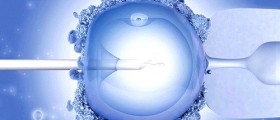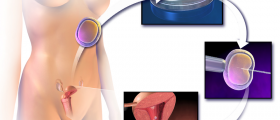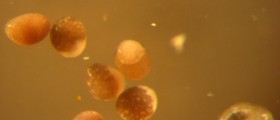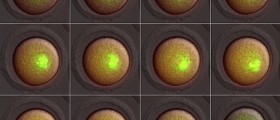
The mechanism by which this happens was not known until now. Researchers from the universities of Southampton and Warwick found out that a chemical called trypsin emitted by embryos helps determine whether or not a particular embryo will implant. Early embryos were found to give off chemicals that give the endometrium clues about their chromosomal health. While there are several chemicals involved in this process, trypsin appears to be critical. If it is present in the right quantities, the uterine lining is more likely to accept the embryo, while it can turn "hostile" if this is not the case. Professor Macklon explained: "With a good embryo then the good response is turned up to allow implantation, if there's a bad embryo then the endometrium responds to reject the embryo. We've identified the pathways which signal this change and this has a big clinical context as implant failure is still the major cause of IVF failure."
Wait, fertility treatment? Yes in IVF, multiple embryos are almost always created and the patients' medical team then decide which one or more to implant. If embryos are successfully created, the first hurdle (conception!) has already been overcome. Not every woman who has one or more embryos placed in her womb after IVF actually becomes pregnant, and that is because not every embryo succeeds at implanting. IVF embryos already go through testing before a decision is made on which embryo or embryos to implant into the womb. The knowledge that levels of the chemical trypsin can give a lot of information about which embryos are most likely to go on to produce a healthy pregnancy have a huge potential to make IVF much more successful than it is today. What do you think about the new finding?




_f_280x120.jpg)










Your thoughts on this
Loading...